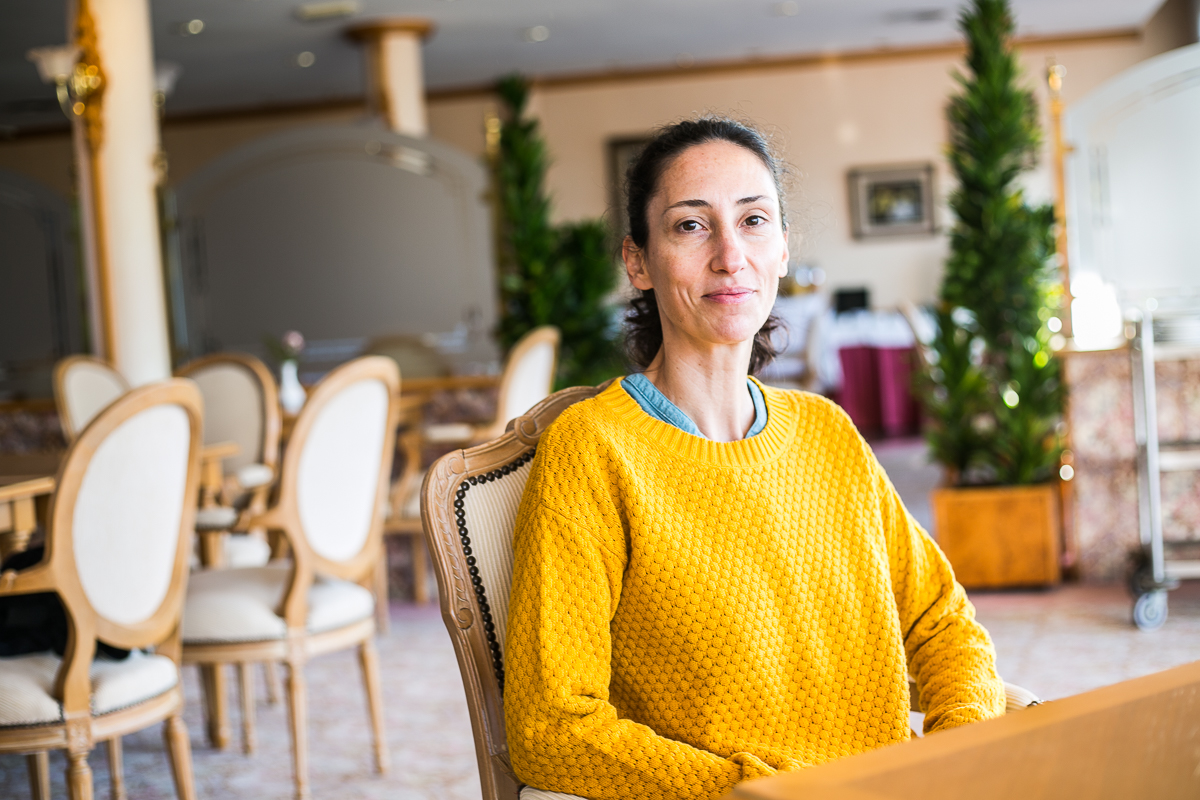Collective residencies / HUMANITIES II / Olot
VALÈRIA GAILLARD
From Monday, 24 October 2016 to Sunday, 20 November 2016

Bio
Valèria Gaillard (Barcelona, 1973) studied Philosophy in the University of Barcelona. Thanks to the scholarship Euromedia that she was granted by the Centre of Studies of the Journalism she had the opportunity to work for six months in Radio France Roussillon in Perpignan (1999) as an internship. After that, she went to Paris for a Master in Journalism in the INA (Institut National de l’Audiovisuel) and she worked in several media-related positions. When the newspaper El Punt (today El Punt Avui) opened a new office in Barcelona she went back to her natal city, in 2003, where she was part of the starting writing team. Since then, she has specialized in literary cultural information, as well as in musician, and classical dance.
In 2009 she went back to university to study Theory of the Literature and Compared Literature in the University of Barcelona, which she finished in 2013. In 2007 she started to translate À la recherche du temps perdu, of Marcel Proust, of which two out of seven volumes have already been published (Grup62). Together with other Proust readers from Catalonia, she has created the Society of Friends of Marcel Proust, of which she is the general secretary.
Project
My project is to finish the translation to the Catalan of Le côté de Guermantes, of Marcel Proust, the third volume of a series that includes seven volumes. For the moment, two volumes have already been published: Du côté de chez Swann (Grup62, 2011) and À l’ombre des jeunes filles en fleur (Grup62, 2013). It represents a fairly complex work that requires dedication and concentration. I began to translate À la recherche du temps perdu of Marcel Proust in 2007. It was a personal initiative that was motivated by the fact that, at that time, there were no up to date translations.
Proust and the Dreyfus Affair
Almost a hundred pages. This was the number of pages that Marcel Proust dedicated to the Dreyfus affair near the end of the first part of The Guermantes Way. The writer makes use of a series of characters in the scene of the sought-after drawing room of Mme Villeparisis (who—take note—does not accept ladies) to illustrate the different standpoints around these court proceedings that shook and divided French society in the late 19th century. Let us remember that writers such as Émile Zola, in his well-known article “J’accuse”, immediately sided with the French captain of Jewish origin—Aldred Dreyfus—who had been unjustly accused of betraying his country. Proust, who at that time was quite young, also immediately declared his support, collecting signatures from intellectuals of that era to defend the captain’s honour. But, going back to the novel, it is baffling to see how—despite everyone having their say with more or less subtlety, almost always encouraged by Bloch, who goads Ambassador Norpois until he finally manages to understand that he is an anti-Dreyfusard—the narrator does not take a stand on the matter at any time. He simply observes and notes how the cause of the anti-Dreyfusards gradually spread like an oil stain, and among the bourgeoisie. The bourgeois, who had never even dreamed of entering the drawing rooms of aristocratic society, found way to get in by allying themselves against Dreyfus, and riding on the coattails of patriotism. For example, while Bloch, a Jew, leaves the drawing room without so much as a farewell from the lady—who pretends to be asleep in order to avoid having to bid him goodbye—, Mme Swann, a former courtesan, is received with open arms because she has gone over to the anti-Dreyfusards’ side. This is despite the fact that her husband is a Jew. The situation is extremely complex and Proust portrays the behavioural nuances of the different characters—who change sides depending on how the wind blows—, and how some struggle to remain faithful to their progressive ideas, despite going against the flow. One of these is the Duke of Guermantes, who considers himself open and far from being a racist, but who doesn’t think twice about criticising a member of his family—Robert de Saint-Loup—who has publicly declared his support for Dreyfus. Not only can this cause a great scandal in good society, but it also runs the risk of expulsion from the Jockey Club!
While waiting for the film that Roman Polanski will soon dedicate to this dark episode in the history of France to come out, we talk about Dreyfus at the Faber Residency with Roy Horovitz. He is a perspicacious Israeli playwright who has already recommended two plays—Une laborieuse entreprise by Hanohk Levin, and Oh Mon Dieu! by Anat Gov—, which he has successfully directed around the world . As in Proust’s novel, humour abounds, and in Oh Mon Dieu!, it’s God himself who seeks a psychologist for some therapy. The Hotel Riu Fluvià of Olot is simply brimming with good humour and camaraderie, and exchange seems to be the order of the day. This is one of the most enriching aspects of our stay. For example, the Scottish novelist David Manderson has recommended The Go-Between by Peter Travis—which is inspired by Proust—while today, I put the book Moments estel·lars de Catalunya (Great Moments of Catalonia) by Joan Bosch in the hands of the historian Andrew Dowling, who is writing an essay on the Catalan independence process. And that’s how things are going, with the sun shining brightly while working at a good pace.
